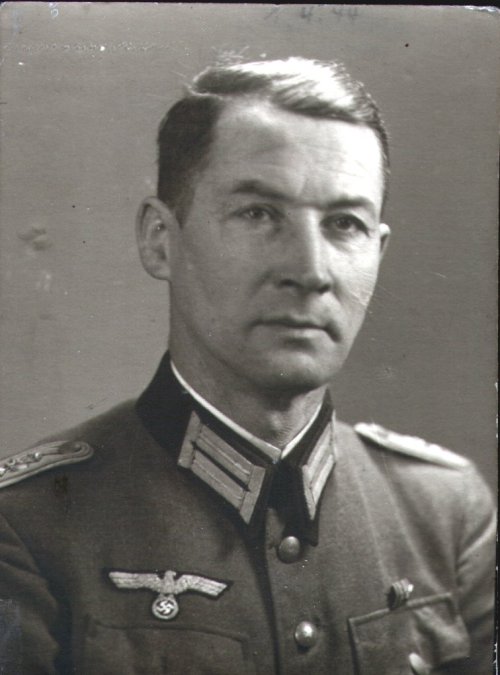facets-of-humanity:Wilhelm Adalbert Hosenfeld was a German Army officer. He was transferred to Warsa
facets-of-humanity:Wilhelm Adalbert Hosenfeld was a German Army officer. He was transferred to Warsaw, Poland in 1940, where he also made his first impressions about the war crimes the Nazis committed, seeing firsthand how the Poles and Jews were treated.Until 1945 he saved the lives of at least 12 Poles and Jews, and helped many more whenever he could, for example by keeping wanted jewish and non-jewish Poles employed under false names. He even learned the Polish language and was often invited by befriended Polish families; extraordinary for a member of the Wehrmacht. He also wrote many letters to his wife, criticizing Nazi rule and their occupation politics.In 1945 he was captured by Soviets, tortured for information and sentenced to 25 years of hard labor for alleged war crimes. Attempts made by his wife and the people he saved to convince the Soviets to release him failed.He died 1952 in a Soviet concentration camp in Stalingrad due to a ruptured thoracic aorta (possibly caused by torture).In October 2007, the Polish President Lech Kaczyński honored Wilhelm with the Order of Polonia Restituta. In October 2008 a plaza in the Hessian village Kassel was named after him; the house in which he was born was named “Wilhelm-Hosenfeld-Haus” (“Wilhelm-Hosenfeld-House”) on March 11, 2011. On November 25, 2008 the Holocaust memorial honored him with the title “Righteous Among the Nations”. He is also portrayed in the movie “The Pianist” (2002), which tells the story of Władysław Szpilman, one of the Jewish-Poles he had saved.Quote; “Both the Jacobins and Bolsheviks butchered their upper ruling classes and executed their royal families. They broke with Christianity and waged war on it, intending to wipe it off the face of the earth. They succeeded in involving the people of the nations in wars fought with energy and enthusiasm - the revolutionary wars of the past, the war against Germany today. Their theories and revolutionary ideas had enormous influence beyond the borders of their own countries. The methods of National Socialism are different, but basically they too pursue a single idea: the extermination and annihilation of people who think differently from them.” (Diary entry, 18 January 1942) -- source link
Tumblr Blog : facets-of-humanity.tumblr.com
#wilhelm hosenfeld#holocaust#wwii

